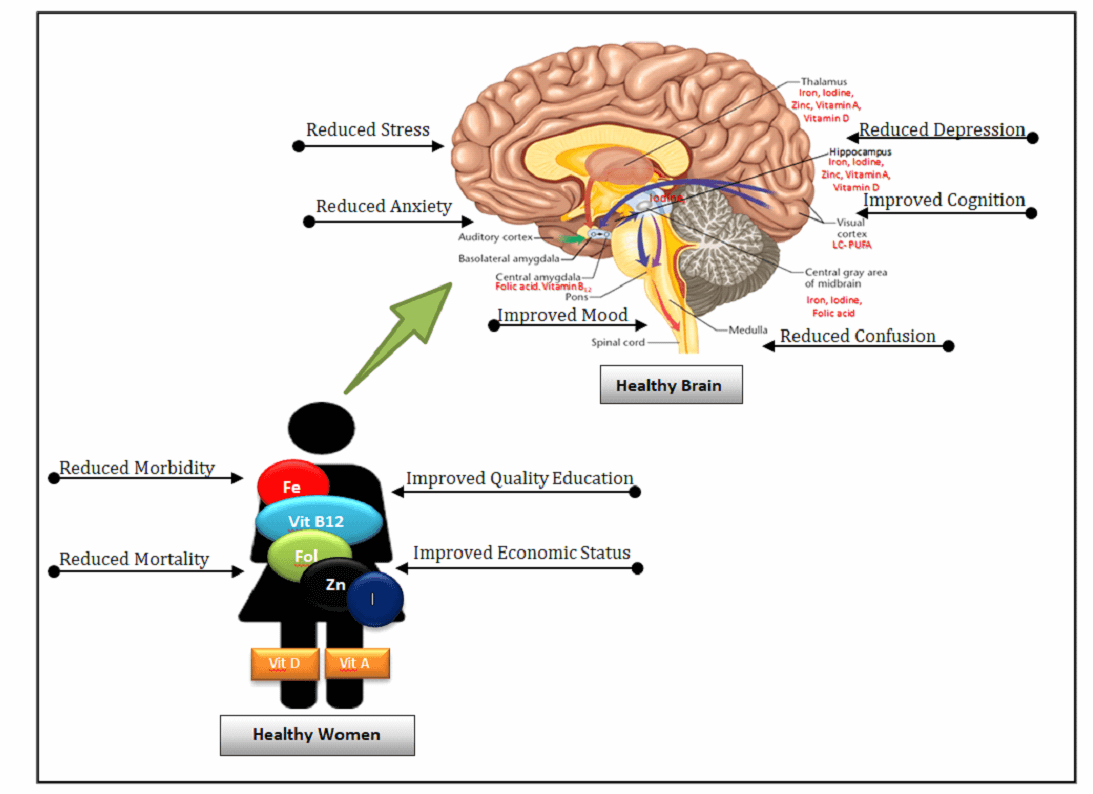Micronutrients are vital nutrients required in smaller amounts by the body to perform normal physiological, metabolic functions along with influencing the structural and functional brain activities. Several micronutrients such as iron, iodine, zinc, folate, vitamin B12, calcium, and n-3 fatty acids have been linked to maternal mental health and wellbeing. Iron affect various brain functions such as myelination (as the oligodendrocytes are sites of iron storage), neurotransmitter synthesis and regulation (particularly the monoamines), synaptogenesis and neurogenesis, and energy expenditure. Iodine is crucial component of thyroid hormone, and it mediates its effects on brain development. Iodine and zinc deficiency affects hippocampus, cerebral cortex, thalasmus, microstructures such as myelin, and neurotransmitters.
The metal ions in the brain contributes to the regulation of neuronal migration, neurogenesis, and differentiation, thereby shaping cognitive development and maintaining healthy brain function.. Folic acid and Vitamin B12 works to produce neurotransmitters and replace nerve cells and its deficiency is responsible for the loss of a good memory. Thus, sufficient micronutrient stores influence the brain epigenome and hold the key for healthy brain functions. Therefore, good nutrient stores in the body of the women project healthy nutritional status of the women as an individual and also for the future generations.
In India, women of reproductive age (WRA) are facing nutrition challenges. According to NFHS-4 (2015-2016), one-third of the women of reproductive age (non-pregnant and non-lactating) in India are undernourished, with a body mass index (BMI) of less than 18.5 kg/m2. Also, 26.8% of the women age 20-24 years married before age 18 years and 53.2% of the non-pregnant women age 15-49 years were anaemic (<12.0g /dl). Hence, elucidated from these facts, huge lacunae is existing in the health system between the adolescent health and period of pregnancy referred to as women of reproductive age. Thus, it brings attention to the missing component to address the needs of young women, as it has a positive impact on the range of outcomes such as reduction in the mortality and morbidities, social and economic benefits for the families, reduction in the non-communicable diseases and improved mental health status (Figure)
